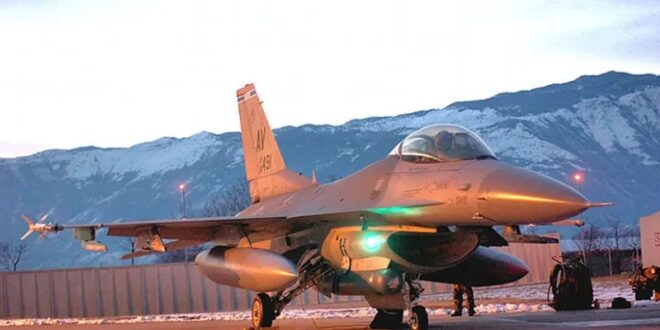In February 2023, Secretary of State Antony Blinken publicly confirmed that the Biden Administration supports a possible sale of F-16 fighter aircraft to Turkey (Türkiye), and has engaged Congress on the issue.
According to January 2023 media reports citing unnamed U.S. officials, the Administration informally notified Congress of its intent to sell 40 new F-16s in the Block 70/72 Viper configuration (F- 16Vs) and Viper upgrade packages for 79 existing fighters, along with 900 air-to-air missiles and 800 bombs, at an estimated total value of $20 billion.
Since Turkey joined the North Atlantic Treaty Organization (NATO) in 1952, U.S.-Turkey cooperation on some issues and differences on others have shaped the two countries’ relationship. Some Members of Congress who have input on a proposed F-16 sale to Turkey have indicated that they expect certain actions from Turkey before they will consider supporting the transaction.
Congressional legislation and oversight have shaped U.S.-Turkey defense cooperation for decades, and Turkey has relied consistently on U.S. imports for complex platforms such as aircraft and helicopters. A number of previously proposed U.S. arms transactions with Turkey (such as for armed drones, air defense systems, and F-16 information sharing and safety upgrades) either have stalled or faced reported congressional holds—perhaps stemming partly from bilateral differences on technology sharing, and partly from tensions over Russia and Syria.
Turkish air capabilities after S-400 controversy
A U.S. F-16 sale to Turkey would likely extend the service life of much of Turkey’s fleet—and ensure its continued interoperability within NATO—while Turkey tries to acquire or design a stealth fighter.
The United States was planning to sell up to 100 F-35s to Turkey until its 2019 acquisition of a Russian S-400 surface-to-air defense system led to a U.S. cancellation of the F-35 transfers. The F-16V could be an interim solution for Turkey, though it lacks the stealth features of the F-35 and may be subject to production backlogs of three years or more.
NATO security considerations and the Swedish and Finnish accession process
After Russia’s 2022 invasion of Ukraine, Turkey’s potential to boost NATO militarily amid a European security crisis may have increased the Administration’s interest in an F-16 transaction.
Turkey’s geographic location at the southeastern flank of the alliance gives it a critical role in regional security. It has NATO’s second-largest military and the world’s third-largest F-16 fleet, hosts important allied assets and personnel, and partners in other ways within the alliance, including by contributing to missions that aid Baltic and Mediterranean security.
At the same time, several Members of Congress have argued that Turkish delays in approving NATO accession for Sweden and Finland have threatened alliance unity in countering Russia. Turkey’s approval of both countries’ accession may be necessary before many Members of Congress would consider backing an F-16 sale. While Turkey approved Finland’s NATO membership in March 2023, it might not take action regarding Sweden’s accession before closely contested Turkish presidential and parliamentary elections scheduled for May.
Congressional review process and other key issues
The Administration may consider whether and when to move forward with a formal notification of a proposed F-16 sale to Turkey, possibly in the face of enduring congressional concerns. Within 15 days after formal notification, Congress could block the sale via a joint resolution of disapproval under the Arms Export Control Act.
Congress also can take action at any time, up to the point of final delivery, via the regular legislative process. Some factors that could affect congressional review of a possible F-16 sale—beyond the NATO-related issues described above—include Turkey’s rivalry with NATO ally Greece, Turkey’s role in Syria, and the potential for questions about Turkish domestic governance to undermine NATO decision-making.
Reportedly, the Administration informally notified a possible sale of up to 40 F-35s to Greece at the same time as the Turkey/F-16 informal notification. For the FY2023 National Defense Authorization Act, the House voted to condition potential F- 16 transfers to Turkey on steps discouraging overflights of Greek territory (Section 1271 of H.R. 7900), but the final version (P.L. 117-263) did not include the condition.
Turkish alternatives to F-16s?
If unable to upgrade their F-16 fleet, Turkish officials might consider Western European alternatives such as Eurofighter Typhoons. However, Turkey may face the following challenges to a Typhoon sale: hesitancy from consortium partner Germany, higher per unit costs, difficulties in transitioning its air force away from its U.S.-origin fleet, and/or potential congressional notification requirements (if it includes U.S.-origin components).
Obstacles to both U.S. and European options could lead Turkey to confront a capability gap in fighter aircraft. A 2022 State Department strategy document argued that “Turkey may be forced to turn to Russia or China” to fill such capability gaps in national defense.
 Eurasia Press & News
Eurasia Press & News



